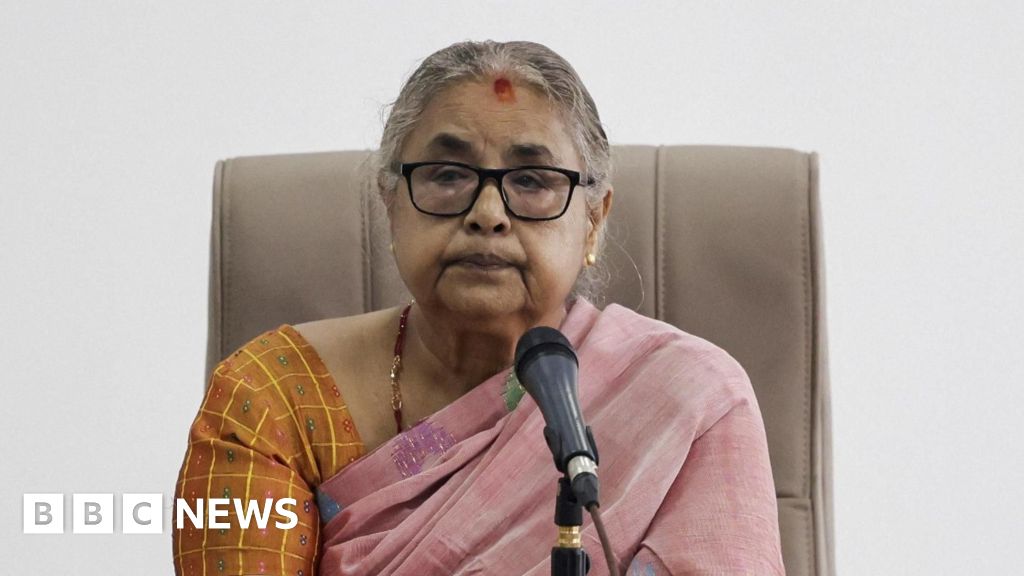
Nepal's interim PM to hand over power within six months

Nepal’s Interim Prime Minister to Transfer Power Within Six Months
In a significant political development, Sushila Karki has been appointed as Nepal’s interim prime minister, a role she has committed to holding for no longer than six months. This announcement marks a pivotal moment in the country’s political landscape, particularly following a period of intense unrest and protests.
Background of the Appointment
Sushila Karki, who previously served as the chief justice of Nepal’s Supreme Court, is notable for being the first woman to lead the nation. Her appointment comes in the wake of widespread protests against corruption, which resulted in the tragic loss of over 70 lives. The protests erupted after a controversial ban on social media platforms on September 8, which sparked outrage among the populace, particularly the younger generation.
In her first public address since taking office on Friday, Karki expressed that her acceptance of the role was not a personal ambition but rather a response to the demands of the people. “I did not wish for this job. It was after voices from the streets that I was compelled to accept,” she stated. Karki emphasized her commitment to transitioning power to a newly elected government, which is scheduled to take office after elections on March 5, 2024.
The Context of Unrest
The protests that led to Karki’s appointment were marked by chaos and violence, with demonstrators targeting government buildings and politicians’ homes. The unrest escalated over two days, culminating in significant damage to public property, including the burning of parliament. The violence resulted in a death toll that includes three police officers, highlighting the severity of the situation.
Reflecting on the destruction, Karki expressed her dismay at the actions of the protesters, stating, “I feel ashamed. If they were Nepalis who destroyed these essential structures, how can they be called Nepalis?” Her remarks underline the complexity of the current social climate, where calls for change are juxtaposed against the need to maintain national unity and respect for public institutions.
Addressing the Demands of the Youth
Karki’s administration is tasked with addressing the concerns raised by the so-called “Gen Z” movement, which has emerged as a powerful voice in Nepal’s political discourse. This group is advocating for an end to corruption, improved governance, and economic equality. Karki acknowledged the importance of these demands, stating, “We have to work according to the thinking of the Gen Z generation.”
The interim prime minister’s commitment to engaging with the youth reflects a broader trend in global politics, where younger generations are increasingly influencing governance and policy-making. Karki’s government will need to navigate these expectations while also addressing the fears of many citizens regarding the stability of Nepal’s young democracy.
Challenges Ahead
Karki and her newly formed cabinet face a daunting array of challenges in the coming months. One of their primary objectives will be to restore law and order in the wake of the protests. This includes rebuilding the parliament and other key governmental structures that were damaged during the unrest.
Moreover, Karki’s administration must reassure both the Gen Z protesters seeking transformative change and the broader population concerned about the integrity of Nepal’s constitutional order. The interim government will need to strike a delicate balance between implementing reforms and maintaining stability, all while preparing for the upcoming elections.
Conclusion
As Sushila Karki steps into her role as Nepal’s interim prime minister, her leadership will be closely scrutinized in the context of the recent upheaval. Her commitment to a short tenure and the promise of elections in March 2024 signal a willingness to engage with the democratic process, even amidst significant challenges. The coming months will be critical in determining not only the future of her administration but also the trajectory of Nepal’s political landscape.
Key Facts
– **New Interim Prime Minister**: Sushila Karki, first woman to hold the position in Nepal.
– **Duration of Tenure**: Karki will serve for no more than six months.
– **Upcoming Elections**: Scheduled for March 5, 2024.
– **Context of Appointment**: Following anti-corruption protests that resulted in over 70 deaths.
– **Protest Demands**: Focus on ending corruption, good governance, and economic equality.
– **Challenges**: Restoring law and order, rebuilding damaged infrastructure, and addressing public concerns about democracy.
Source: www.bbc.com

